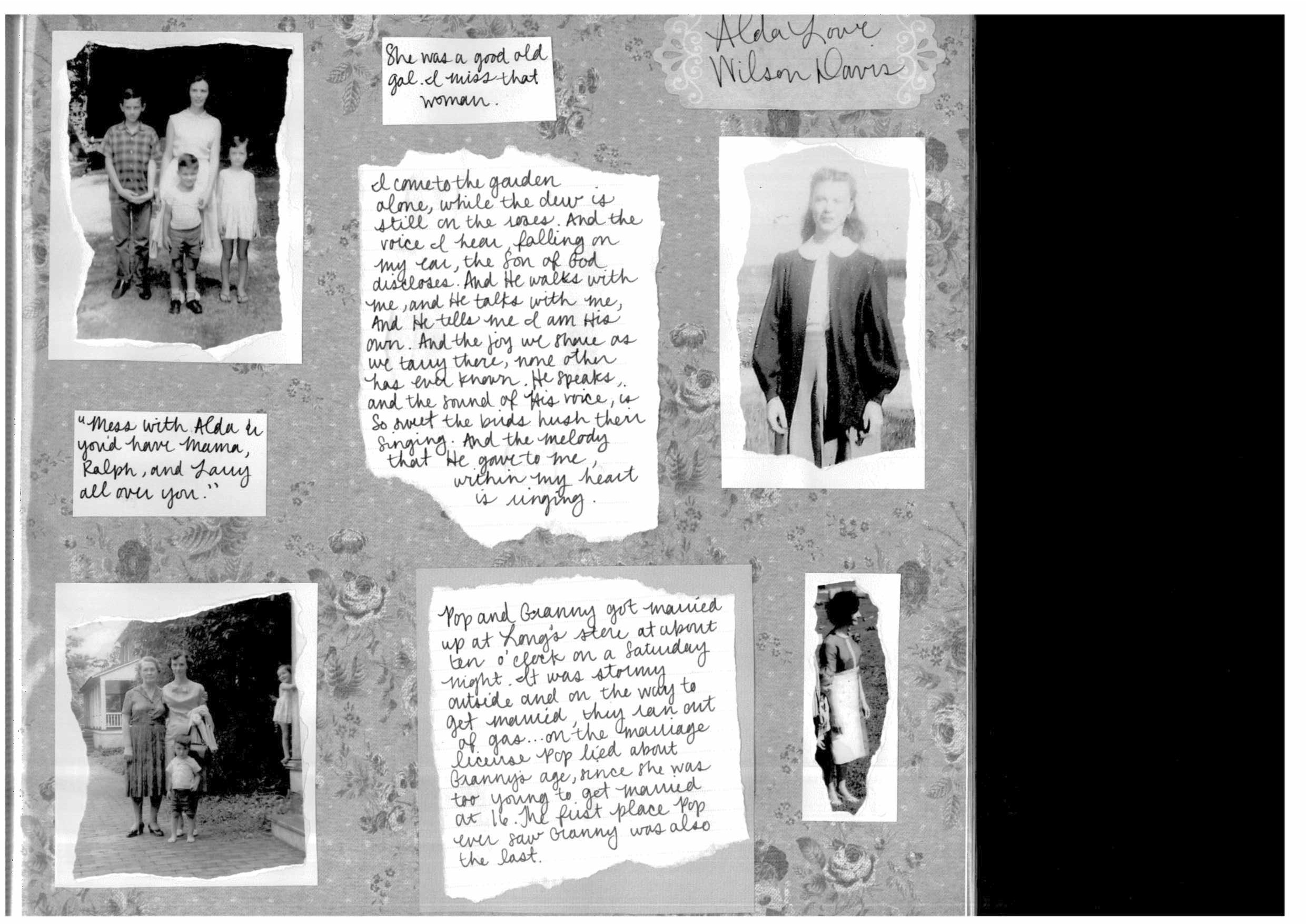
This project is a multidimensional scrapbook, documenting the life of my grandfather, Robert Davis. By weaving Pop’s own narrative through the stories he tells about the settings and times of his life and the people around him, I created a collective story that incorporates multiple modes of autobiography.
My grandfather and his records were key sources of information necessary to complete this project. In this process of information gathering, actually writing down oral traditions provided a foundation for the project. From there, the scanning of pictures, recording of songs, and organization of records will left me with the database necessary to compile the scrapbook.
Memory plays an important role in this scrapbook, since Pop’s stories serve as my primary source. Authenticity is central as well, as I sought to preserve a style comparable to my grandfather’s. This scrapbook is an example of a collaborative and filial narrative. It is collaborative in the sense that I reinterpret Pop’s memories by scrapbooking them and filial through its incorporation of many family members into Pop’s own story. His way of describing his own life is through others.
Upon beginning this project, I envisioned a linear and neatly organized scrapbook. However, as I spoke with Pop and asked him to talk about specific things, I began to realize that even he does not view his life in a linear manner. While talking, he can quickly jump from a story about our family’s moonshine business within the Confederacy in the “War Between the States” to a remark about a woman’s funeral he preached the day before. So, to maintain a level of authenticity, I decided to maintain this nonlinear flow of information. By including pieces of songs or small remarks within a larger theme of a page, the scrapbook maintains the natural flow with which Pop speaks. Another issue arose with my attempt to maintain authenticity within the scrapbook. I wrote notes while speaking with Pop, but in transferring these notes to Pop’s life narrative within the scrapbook, I struggled with how to present the information. So, I decided to vary the perspective within the scrapbook. At times, I included quotes from Pop where I was either able to write down his words verbatim or where I had heard the same story or expression enough so that I was able to quote Pop accurately. This issue also leads into the genre of autobiography I engaged with, which is filial and collaborative autobiography. Because the way Pop describes his life is often in terms of other people’s lives, mostly family members, this scrapbook is deeply interwoven with family history and tradition. Therefore, I included “scraps” written from my own perspective, since as a member of this filial tradition, Pop’s story is also my own. So, at times, I write about Robert and Alda as “Pop and Granny,” since this is what I know them by. Also, though I was attempting to concretize an oral tradition that is important to my family life, I also attempted to preserve certain aspects of this tradition. For instance, I did not always provide background information for stories within the book, hoping that oral tradition will continue to provide a framework for these stories. Also, I did not caption the photographs within the book; again, this was a conscious decision so that as my family looks through this book, they will maintain a need to voice these stories and elaborate on this information. The scrapbook is also very collaborative, as essentially all of my information came from family members, since all of this scrapbook documents the past, most of which occurred before my own birth. Lastly, this scrapbook encompasses many different genres of autobiography. Genealogies, photographs, pets, recipes, how-to’s, songs, etc. are all included because they all reveal important aspects of Pop’s life that work to shape his identity.
Effort / Timeline / Sources
I ran into two major problems while creating this scrapbook. The first problem involved information gathering. Though my grandfather talks almost constantly while we are together, I found it difficult to actually ask for information from him. He was much less candid when I wrote down his words, which led me to take very basic notes, filling in the gaps with my own memory.The second problem I found was one of authenticity. Since Pop did not actually write down any of the statements in the scrapbook, I had a difficult time deciding how to frame the stories and information in the book. I ended up including a mixture of perspectives. Often, I wrote from my own perspective, calling my grandfather Pop and speaking about his life from my own retelling of his stories. However, I did want to include some quotes from Pop, which I often did on smaller sheets of paper.

